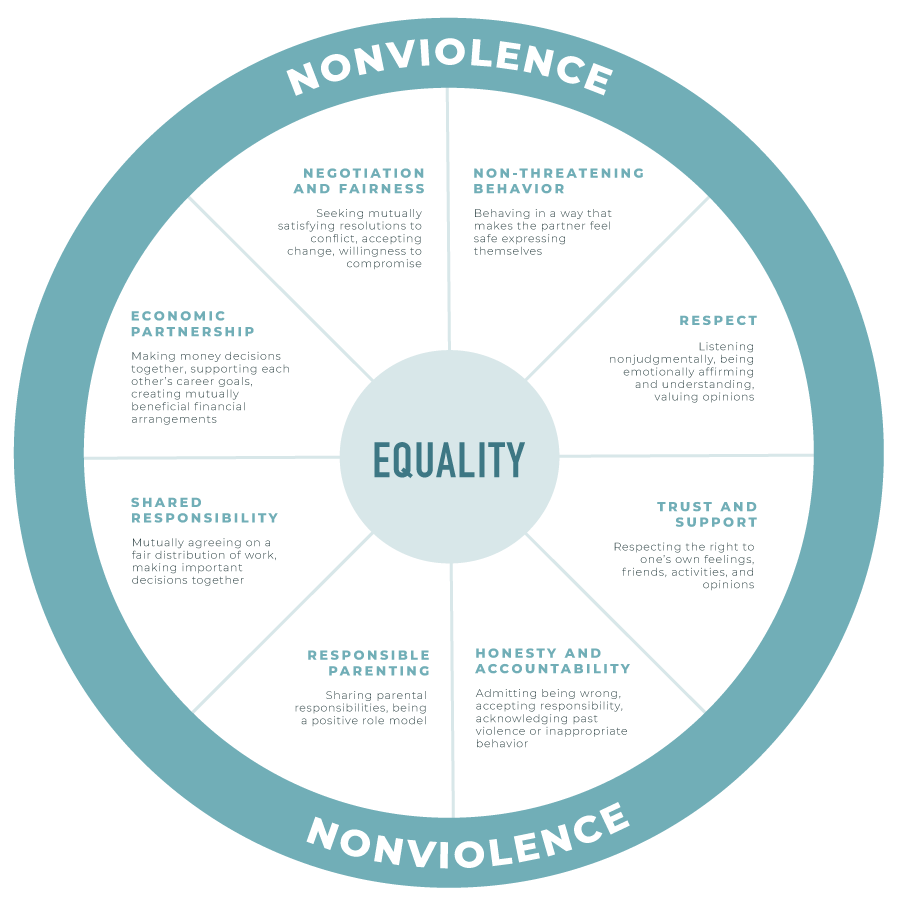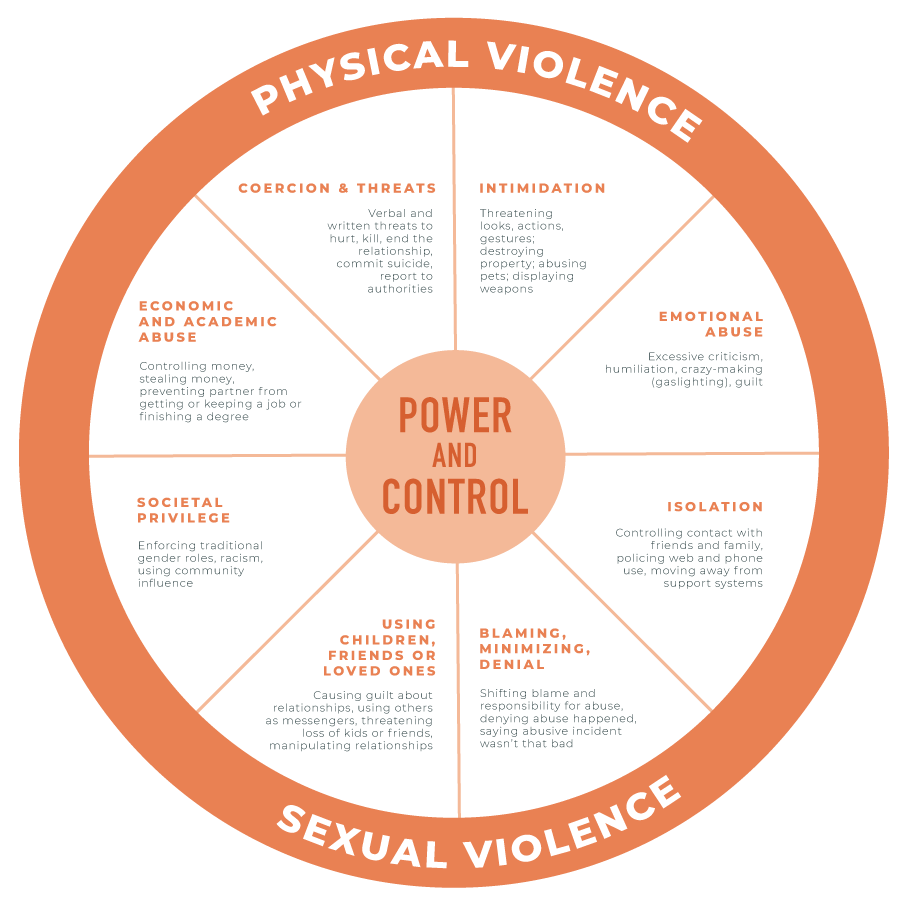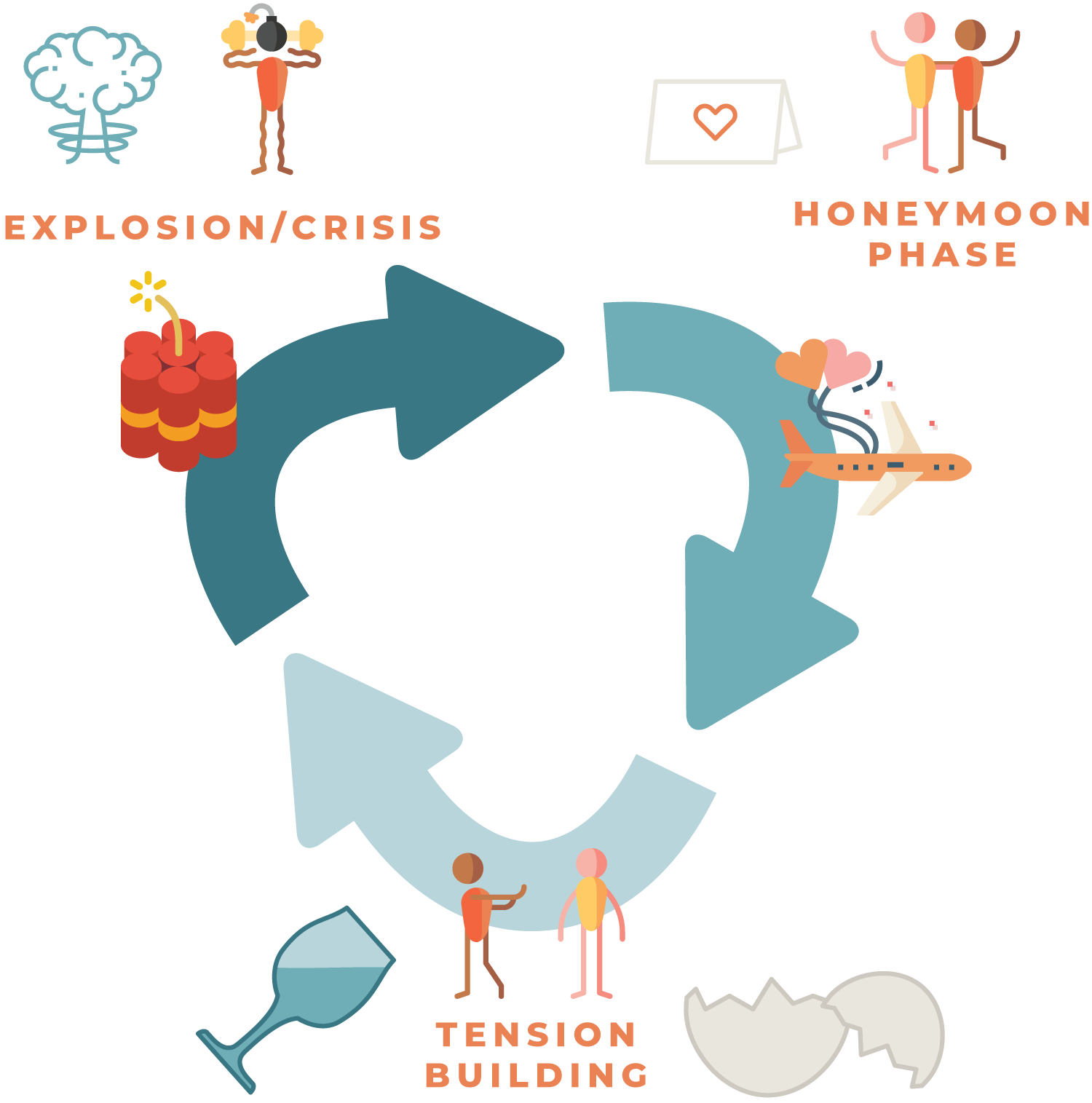empowerment fueled by knowledge
Abuse defined
what is Domestic violence?
Domestic violence (DV) is a serious, preventable public health problem that affects millions of Americans. Domestic/intimate partner violence is the systematic use of physical, emotional, economic, spiritual, and/or sexual abuse tactics to gain and maintain power and control in an intimate relationship.
This type of violence can occur among heterosexual or same-sex couples and does not require sexual intimacy. Domestic violence affects every community across the country, regardless of ethnic group, culture, or background. People of all ages, income levels, faiths, sexual orientations, gender, and education levels can experience domestic violence.
Domestic violence isolates the person being abused and can rob inner strength, feelings of self-worth and the ability to make personal choices. Often people experiencing abuse begin to feel responsible for the abuse. Domestic violence is not a private matter, a family problem, a domestic “squabble” or a “fight.” It is not a momentary loss of temper or the abuse of drugs and alcohol. Abusers choose to use tactics of violence repeatedly to gain power and control.
what is SEX TRAFFICKING?
Sex trafficking is a type of human trafficking and is a form of modern day slavery. It is a serious public health problem that negatively affects the well-being of individuals, families, and communities. Human trafficking occurs when a trafficker exploits an individual with force, fraud, or coercion to make them perform commercial sex or work. Sex trafficking is defined by the Trafficking Victims Protection Act of 2000 as “the recruitment, harboring, transportation, provision, obtaining, patronizing, or soliciting of a person for the purpose of a commercial sex act.” It involves the use of force, fraud, or coercion to make an adult engage in commercial sex acts. However, any commercial sexual activity with a minor, even without force, fraud, or coercion, is considered trafficking.
what is Stalking?
Stalking is a public health problem that affects millions of women and men in the United States. Stalking occurs when someone repeatedly harasses or threatens someone else, causing fear or safety concerns. Source: Centers for Disease Control.
In Montana, stalking is against the law.
what is sexual assault?
The term “sexual assault” means any nonconsensual sexual act proscribed by federal, tribal, or state law, including when the victim lacks capacity to consent. Source: Office on Violence Against Women.
It’s against the law in Montana.
Cycle of Violence
In some relationships there is a pattern of abuse. The abuse is rarely a one-time-only event – usually the abusive incidents will increase in number and seriousness.
No matter what you do, the abuser will always find new reasons to explode. The violence isn’t about your behavior – it is about the abuser wanting power and control and manipulating you to achieve it.
Honeymoon Phase I:
Abusive relationships don’t start with abuse.
Abusers often appear:
Charming
As a knight in shining armor
Helpful and considerate
To enforce traditional gender role in a chivalrous way
Abusive relationships move very quickly at the beginning. Abusers may profess love or propose marriage much sooner than expected. Often, the cycle of abuse moves into the next phase when a major event takes place, such as marriage, moving in together or pregnancy.
Tension Building Phase
Abuser may:
Pick fights
Act jealous & possessive
Criticize, threaten
Drink, use drugs
Be moody, unpredictable
Be crazy-making
Partner may:
Feel like they are walking on eggshells
Try to reason with the abuser
Try to calm or appease the abuser
Feel afraid or anxious
Provoke the abuser
Explosion/Crisis Phase
Abuser may:
Verbally abuse
Sexually assault
Physically abuse
Increase control over money
Restrain partner
Destroy property, phone
Partner may:
Experience fear, shock
Protect self & children
Use self-defense
Call for help
Try to flee, leave
Pray for it to stop
Honeymoon Phase II
Abuser may:
Ask for forgiveness
Promise it won’t happen again
Stop drinking, using drugs
Go to counseling
Be affectionate
Minimize or deny abuse
Partner may:
Forgive
Return home
Arrange for counseling
Feel hopeful
Blame self
Minimize or deny abuse
Violence begins with less serious forms and progresses to more severe and more frequent violence. While some abuse can be restricted to “just verbal” or “just emotional” that does not mean that verbal/emotional abuse is not traumatic. Emotional wounds from abusive relationships take time to repair. The abuse can escalate over time. If the survivor begins to show signs of not tolerating the abuse, the abuser can become more intense in their emotional/verbal abuse, begin to use threats and intimidation, even to physical violence in order to exert and maintain power and control. Domestic violence works for abusers because it is effective in controlling their intimate partner by fear.



